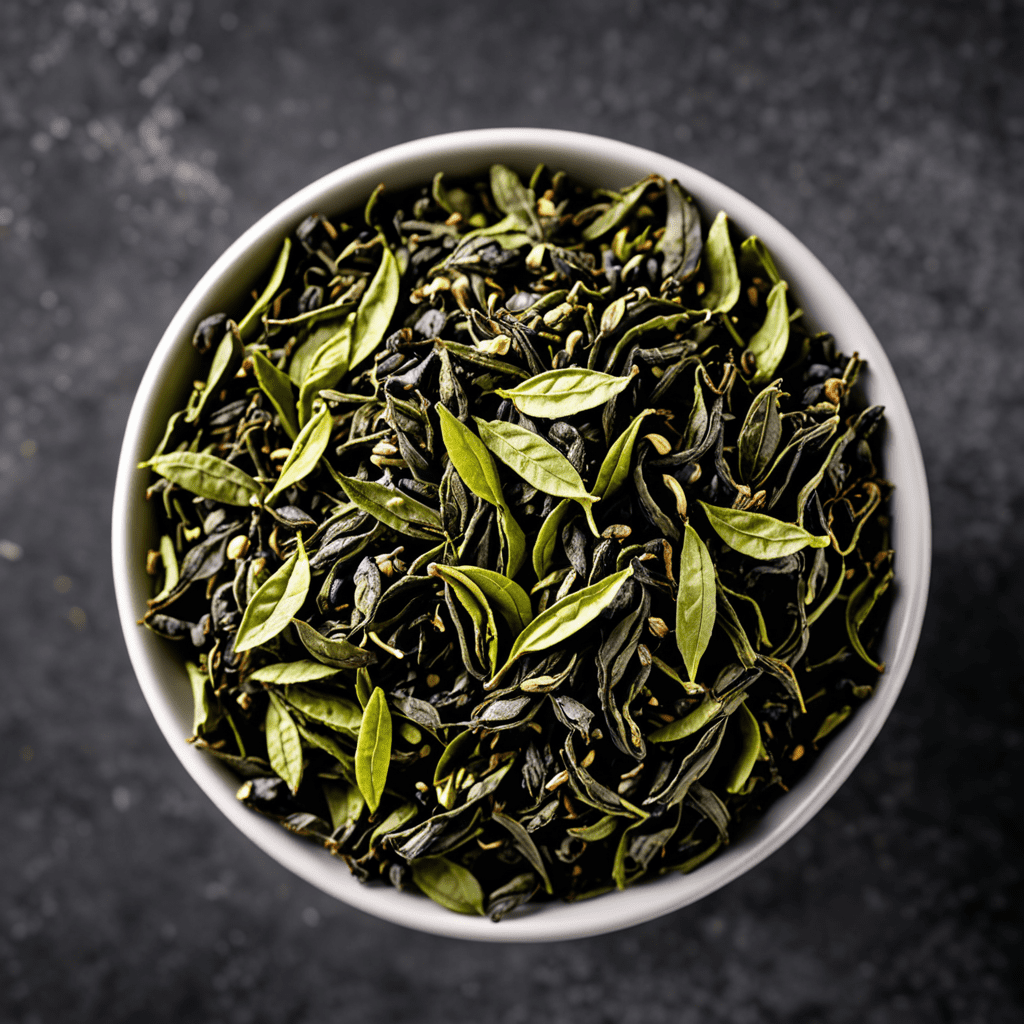
How Acidic is Green Tea: Exploring Its pH Level

Green tea has gained immense popularity in recent years due to its numerous health benefits and refreshing taste. As tea enthusiasts, it’s essential to understand the composition of green tea and how it affects our body. One aspect worth exploring is the acidity level of green tea. In this article, we will delve into the topic and provide valuable insights on the pH level of green tea.
Understanding pH Levels
Before diving into the acidity of green tea, let’s get familiar with pH levels. pH is a scale used to measure the acidity or alkalinity of substances. Ranging from 0 to 14, a pH of 7 is considered neutral, pH below 7 indicates acidity, and pH above 7 indicates alkalinity. Knowing the pH level of a substance helps assess its potential impact on our health.
The pH of Green Tea
When it comes to green tea, the pH level can vary. On average, freshly brewed green tea typically has a pH between 7 and 8, which puts it in the slightly alkaline range. However, these numbers can fluctuate depending on various factors, including brewing time, temperature, and the specific green tea variety.
Factors Influencing Green Tea’s pH
Tea Variety
Different green tea varieties may exhibit varying acidity levels. For example, Matcha green tea, made from finely ground tea leaves, tends to have a slightly higher acidity level compared to regular loose-leaf green tea. However, the differences in acidity are generally minimal and unlikely to have a significant impact on overall taste or health benefits.
Brewing Temperature
The temperature at which green tea is brewed can affect its pH level. Typically, brewing green tea at higher temperatures increases its acidity. Optimal brewing temperatures for green tea range from 160°F (71°C) to 180°F (82°C), ensuring a balance between releasing flavor compounds and preserving the tea’s overall acidity.
Brewing Time
The length of time green tea is steeped can also influence its pH level. Prolonged steeping can increase the tea’s acidity. It is recommended to steep green tea for approximately 2-3 minutes to strike a balance between flavor extraction and maintaining a moderate pH level.
Adding Lemon or Other Ingredients
Adding additional ingredients to green tea, such as lemon or other citrus fruits, can alter its pH level. Citrus fruits contain citric acid, which contributes to an increase in acidity. However, the impact of adding these ingredients on the overall pH level of green tea is usually minimal and depends on the quantity added.
Quality and Freshness
The quality and freshness of green tea can impact its pH level as well. Higher quality green teas are often processed more carefully, resulting in lower acidity levels. Aging green tea can also increase its acidity over time. It’s advisable to store green tea properly and consume it within its recommended shelf life to maintain optimal freshness and flavor.
FAQ
Q: Does the acidity of green tea affect its taste?
A: While the pH level of green tea contributes to its overall taste, the impact is relatively minor. Green tea is known for its subtle and grassy flavor, which is mainly influenced by factors like tea variety, brewing technique, and water quality.
Q: Can green tea acidity affect digestive health?
A: Green tea is generally considered safe for consumption and can even have a positive effect on digestion due to its antioxidants and catechins. However, individuals with pre-existing digestive conditions may experience discomfort if their bodies are sensitive to the natural compounds present in green tea.
Q: Is green tea more acidic than other types of tea?
A: Compared to black tea and some herbal teas, green tea tends to be slightly less acidic. However, the differences in acidity are minimal and should not be a significant concern for most individuals.
Q: Does adding milk to green tea affect its acidity?
A: Adding milk to green tea can slightly reduce its overall acidity. The proteins in milk help neutralize some of the acidic components in the tea, resulting in a smoother flavor. However, the impact on pH levels is generally minimal.
Q: Can I adjust the acidity of green tea?
A: While it is not possible to directly modify the acidity of green tea, you can control factors like brewing temperature and time to minimize acidity. Additionally, experimenting with different tea varieties can help you find a taste profile that suits your preference.
Q: Does the acidity of green tea affect its health benefits?
A: The acidity of green tea does not significantly impact its health benefits. Green tea is known for its rich antioxidant content, catechins, and other bioactive compounds that provide a wide array of health benefits, regardless of its pH level.
Understanding the acidity of green tea can contribute to a deeper appreciation of this beloved beverage. With its range of flavors, health benefits, and versatility, green tea continues to captivate tea lovers worldwide. As you savor your next cup of green tea, consider how its pH level adds to the overall experience.


